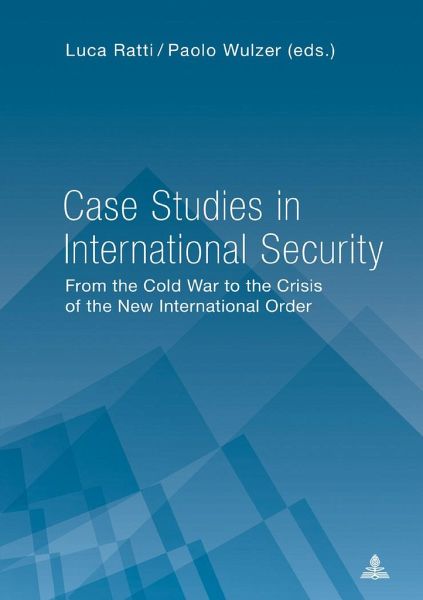
Case Studies in International Security
From the Cold War to the Crisis of the New International Order
Herausgegeben: Ratti, Luca; Wulzer, Paolo
Versandkostenfrei!
Versandfertig in 6-10 Tagen
111,45 €
inkl. MwSt.

PAYBACK Punkte
0 °P sammeln!
Case Studies in International Security. From the Cold War to the Crisis of the New International Order presents a number of case studies that shaped prevailing security perceptions in world politics during and after the Cold War, framing their analysis in a comparative perspective. Its contributors address U.S. and European views of, and approaches to, the emergence and transformation of the transatlantic system during the Cold War, security discourses and practices in the Middle East, the Far East, and Latin America, and the renewal of the transatlantic relationship in the early 1990s and in ...
Case Studies in International Security. From the Cold War to the Crisis of the New International Order presents a number of case studies that shaped prevailing security perceptions in world politics during and after the Cold War, framing their analysis in a comparative perspective. Its contributors address U.S. and European views of, and approaches to, the emergence and transformation of the transatlantic system during the Cold War, security discourses and practices in the Middle East, the Far East, and Latin America, and the renewal of the transatlantic relationship in the early 1990s and in the post-Cold War period. The underlying argument of this volume is that, whereas the changes brought about in the structure of the international system by the Cold War's end led to a qualitative shift in security discourses, today's prevailing security conceptions continue to be rooted in the bargains and arrangements that the U.S. and its partners negotiated at the end of World War II and renewed throughout and after the Cold War.














